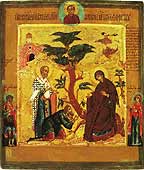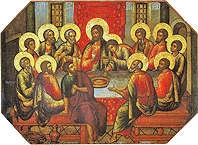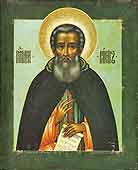The Museum Collections
Introduction
I. History and Art Collection
1. Icons of the 14th 19th centuries
icons of the 14th 17th century
2. Jewelry art of the 14th 20th century
jewelry art of the 14th 17th century
jewelry art of the 18th 19th century
the european silver 14th - 19th centuries
3. Small-size sculptures (works of metal, wood, bone)
XI the beginning of the XX century
Small-size sculptures 11th 17th century
Small-size sculptures 18th early 20th century
enamel of Troitza masters 15-8th early 20th century
5.Embroidery, lace, textiles of the 14th - early 20th century
icon and ornamental embroidery
gold and silver lace
6.Painting of the 18th 21st centuries
painting of the 18th 19th centuris
painting of the 20th 21st centuris
II.Manuscripts and old printed books of the 14th 17th century
IV.Lithography of the 18th 19th century
V.Numismatics
VI.Medals of the 18th - early 20th century
VIII.Archeology collection
IX. Russian folk and applied and decorative art of the 17th 21st c.
1. Artistic wood
folk carved and painted wood
wooden toys
house carving of Sergiev Posad
Khokhloma and Gorodets painting
2. Artistic textiles
embroidery and weaving
printed textiles and lace
Russian shawls
folk costumes
folk garments
printed cotton kerchiefs
|
Icons of the 14th 17th cc. (page 4)
|
|
The 17th century Russian art is varied in themes and stylistic trends. It reflects a great tension of spiritual life caused by the events that took place at the beginning of the century: dynastic crisis, peasant movements, national struggle for liberation. Gradually and slowly, in bitter disputes the world view was changing and new conception of an individuals role was taking shape.
|

The Appearance of the Virgin to the Sexton Yurysh. First half of the 17th century. |

The Miracle of St. George and the Dragon. 17th century |

The Assumption of the Virgin. 1671. Donated by Bogdan Matveyevich Khitrovo
|
In the 1660s Simon Ushakov became a tsar isographer and a leading painter of the Armoury Chamber. His art determined quite an epoch in Russian art. In the course of 22 years he supervised icon-painting in the Armory Chamber. He was a very industrious man of great executive talent and other remarkable abilities. Apart from icons Simon Ushakov painted murals in churches and palaces, made engravings, portraits, wrote treatises on art, made drawings for embroideries, banners and coins. Creative works of the outstanding imperial icon-painter is present in collections of the museum by interesting art monuments of 70-80th years of the XVII century.
Distinctive feature of icons of Simon Ushakov, which is in the collection of the museum, - presence on them of author's signatures. In 1671 B.M. Khitrovo inserted into the Troitsk monastery the small icon "The Assumption of the Virgin". More interesting praying icons, created by Simon Ushakov in 1673. To them concern "John Theologian" and "St.Nikon Radonezhsky". One of the last works of Simon Ushakov in the Troitsk monastery - the icon "The Last Supper", created by him in 1685 for the Uspensky cathedral. Skill of the mature artist showed in full measure here.
|

Simon Ushakov. St. John the Theologian. 1673 |

Simon Ushakov. The Sacred Supper. 1685 |

Simon Ushakov. St. Nikon of Radonezh. 1673.
Donated by Bogdan Matveyevich Khitrovo
|
|


